TESDA Bataan: Your Ultimate Guide to Skills Training in the Hero Province
The Hidden Gem of Skills Training You’ve Been Overlooking
Here’s something most people don’t know about Bataan: While everyone remembers it as the province where World War II’s most heroic stand took place, today it’s quietly becoming one of Central Luzon’s most strategic locations for technical-vocational training.
Think about it. You’re an hour’s drive from Manila. You’ve got the Freeport Area of Bataan (FAB) with its international companies practically begging for skilled workers. There’s Subic Bay to the north, Clark to the east, and Metro Manila to the south. TESDA Bataan sits right in the middle of this employment goldmine, yet somehow it remains one of the best-kept secrets in Philippine skills training.
I’ve spent considerable time talking to students, instructors, and employers in this province, and here’s what I’ve learned: TESDA Bataan isn’t just another training center. It’s your shortcut to the kind of stable, well-paying careers that most people spend four years and hundreds of thousands of pesos trying to access through traditional college.
Whether you’re fresh out of high school, contemplating a career change, or an international student looking for recognized certifications, this guide will walk you through everything you need to know about navigating the TESDA system in Bataan.
No bureaucratic nonsense. No corporate speak. Just real talk about real opportunities.
Why TESDA Bataan Deserves Your Attention
Location, Location, Location
Let’s start with geography, because in the world of technical-vocational training, where you study matters almost as much as what you study.
TESDA Bataan benefits from what I call the “strategic triangle advantage.” You’re positioned perfectly between:
- Manila Metro (60-90 minutes south): The country’s employment capital
- Subic Bay Freeport (45 minutes north): International logistics and maritime hub
- Clark Freeport (60 minutes east): Aviation, tourism, and business center
- Freeport Area of Bataan (local): Manufacturing and industrial zones
What does this mean practically? When you complete your TESDA courses in Bataan, you’re not limited to local job hunting. You’ve got four major employment hubs within commuting distance. I’ve met graduates who live in Bataan but work in Subic, earning competitive salaries while enjoying lower provincial living costs. That’s the kind of lifestyle arbitrage you can’t replicate in most regions.
The Industrial Advantage
Bataan isn’t just historically significant—it’s economically strategic. The province hosts:
- Petrochemical plants
- Shipbuilding facilities
- Manufacturing operations
- Electronics assembly plants
- Food processing industries
- Tourism and hospitality establishments
Each of these industries actively recruits TESDA-certified workers. The provincial government even facilitates regular job matching events where employers specifically request graduates from TESDA accredited schools in Bataan.

Cost-Effective Training
Here’s the financial reality: Training in TESDA Bataan costs significantly less than Manila or other urban centers, yet the certification you receive carries identical weight. We’re talking 30-40% savings on accommodation, food, and daily expenses while getting the same quality education.
For international students particularly, this matters. Your budget stretches further in Bataan while you’re still close enough to major cities for weekend exploration or networking opportunities.
Understanding TESDA: The Basics You Need to Know
Before we dive into Bataan specifics, let’s establish some fundamentals. If you’re already familiar with TESDA, feel free to skip ahead. But if you’re new to this system, this section is crucial.
What Exactly Is TESDA?
The Technical Education and Skills Development Authority is the Philippine government agency managing technical-vocational education. Think of it as the national body ensuring that skills training meets international standards and actually translates into employment.
Unlike traditional education that emphasizes theory, TESDA focuses on competency-based training. You’re not graded on how well you memorize facts—you’re assessed on whether you can actually perform the job. Can you weld a pipe that won’t leak? Can you troubleshoot a malfunctioning computer? Can you provide patient care safely?
That’s what matters. That’s what employers pay for.
The TESDA Certification Hierarchy
National Certificate I (NC I)
- Entry-level competency
- Basic task performance
- Limited decision-making
- Supervised work
National Certificate II (NC II)
- Intermediate proficiency
- Complex task completion
- Minimal supervision needed
- Industry standard for most positions
National Certificate III (NC III)
- Advanced skills
- Supervisory capabilities
- Problem-solving authority
- Specialized expertise
National Certificate IV (NC IV)
- Management level
- Strategic planning abilities
- Entrepreneurial readiness
- Industry leadership
Most TESDA Bataan programs target NC II certification—the sweet spot for employability and career progression.
Top TESDA Courses Available in Bataan
Let’s get specific. What can you actually study at TESDA Bataan? I’ve organized this based on industry demand, employment rates, and salary potential.
1. Welding Technology Programs
Why It’s Hot in Bataan:
The shipbuilding and construction industries in Bataan are absolutely ravenous for certified welders. FAB hosts several heavy industries requiring welding expertise daily.
Available Specializations:
- Shielded Metal Arc Welding (SMAW) NC I & II
- Gas Metal Arc Welding (GMAW) NC II
- Gas Tungsten Arc Welding (GTAW) NC II
- Flux Cored Arc Welding (FCAW) NC II
Training Duration: 3-6 months depending on specialization
Investment: ₱0-₱15,000 (often fully scholarship-covered)
Starting Salary (Local): ₱18,000-₱28,000 monthly
Overseas Potential: Extremely high—Middle East shipyards, Singapore construction, Australian projects
Real Talk: Welding is physically demanding. You’ll be hot, sweaty, and exhausted initially. But it’s also one of the most direct pathways to six-figure monthly incomes (overseas) within 2-3 years. The TESDA NC II Bataan welding certification is your ticket to that trajectory.
| Welding Type | Difficulty Level | Market Demand | Overseas Opportunities |
|---|---|---|---|
| SMAW (Stick) | Moderate | Very High | Excellent |
| GMAW (MIG) | Moderate-High | High | Excellent |
| GTAW (TIG) | High | Very High | Outstanding |
| FCAW | Moderate | High | Good |

2. Automotive Technology
Why Bataan?
The province’s strategic location makes it a logistics hub. Commercial vehicles, private cars, and industrial equipment all need maintenance. Plus, you’re near enough to Manila’s massive automotive industry for easy job placement.
Program Offerings:
- Automotive Servicing NC I & II
- Diesel Engine Servicing
- Motorcycle and Small Engine Repair
- Driving NC II (Professional driving certification)
What You’ll Master:
- Engine diagnostics and repair
- Electrical systems troubleshooting
- Brake and suspension maintenance
- Computer-controlled systems
- Customer service essentials
- Shop management basics
Duration: 4-6 months for NC II
Career Paths:
- Dealership technician (₱18,000-₱30,000)
- Independent mechanic (₱25,000-₱45,000)
- Fleet maintenance supervisor (₱28,000-₱50,000)
- Automotive instructor (₱20,000-₱35,000)
- Marine engine technician (cruise ships—USD 1,500-3,000)
The TESDA Bataan courses in automotive are particularly well-regarded because instructors often have actual industry experience from FAB’s transport and logistics sectors.
3. Electrical Installation and Maintenance
The Bataan Advantage:
With ongoing industrial expansion, electrical work is perpetually in demand. Solar energy projects, factory installations, residential construction—the opportunities are diverse and growing.
Training Components:
- Residential wiring installation
- Industrial electrical systems
- Motor controls and automation
- Safety protocols and regulations
- Blueprint reading
- Electrical troubleshooting
- Power distribution systems
Certification: Electrical Installation and Maintenance NC II
Duration: 5-6 months
Why It Matters: The electrical NC II certification is one of the few technical qualifications that allows you to legally operate as a professional electrician in the Philippines. Without it, you’re limited to helper positions.
Income Potential:
- Residential electrician: ₱20,000-₱35,000/month
- Industrial electrician: ₱25,000-₱45,000/month
- Electrical contractor (self-employed): ₱40,000-₱100,000+/month
- Overseas construction projects: USD 1,800-3,500/month
4. Computer Hardware Servicing
The Digital Skills Path:
Even in industrial Bataan, digital literacy and technical support skills are valuable. Every company needs IT support, and certified technicians command respect and good wages.
Curriculum Highlights:
- PC assembly and disassembly
- Hardware diagnostics
- Operating system installation and configuration
- Network setup basics
- Printer and peripheral maintenance
- Mobile device repair
- Customer support protocols
Duration: 3-4 months
Certification: Computer Systems Servicing NC II
Career Opportunities in Bataan:
- IT support for FAB companies (₱18,000-₱28,000)
- Computer shop entrepreneur (₱25,000-₱60,000)
- BPO technical support specialist (₱20,000-₱35,000)
- School/government IT technician (₱18,000-₱30,000)
International Student Note: This is one of the best courses for those wanting location-independent income. Combine it with online certifications (CompTIA A+, Network+) and you can work remotely from anywhere.
5. Caregiving NC II
Why Bataan is Strategic for Caregivers:
Proximity to Manila means access to major hospitals and healthcare facilities for clinical exposure. Plus, TESDA scholarship Bataan programs often prioritize caregiving due to global demand.
Comprehensive Training:
- Basic patient care and hygiene
- Vital signs monitoring
- First aid and emergency response
- Geriatric care specialization
- Patient nutrition and feeding
- Proper lifting and moving techniques
- Communication and cultural sensitivity
- End-of-life care basics
Duration: 6 months including required clinical hours
Certification: Caregiving NC II (internationally recognized)
The International Pathway:
This is where things get interesting for international students or Filipinos eyeing overseas work. The TESDA NC II Bataan caregiving certification is recognized by:
- Canada (especially through caregiver immigration programs)
- United Kingdom (care homes and NHS facilities)
- Australia (aged care sector)
- New Zealand (growing demand)
- Middle East (private care positions)
Realistic Timeline to International Employment:
- Months 1-6: Complete TESDA training and certification
- Months 7-18: Work locally to gain experience (required by most foreign employers)
- Months 19-24: Apply for international positions, process documentation
- Year 3: Deploy overseas, typically earning USD 1,500-3,000+ monthly
I’ve watched this pathway change lives. It’s not quick, but it’s reliable if you’re committed.
6. Food and Beverage Services
Bataan’s Tourism Angle:
While not as touristy as Boracay, Bataan has historical sites, beach resorts, and growing hospitality infrastructure. Plus, you’re positioned to work in nearby Subic’s booming hotel scene.
Available Programs:
- Commercial Cooking NC II
- Bread and Pastry Production NC II
- Food and Beverage Services NC II
- Bartending NC II
- Barista Training
- Events Management Services
Training Focus:
- Commercial food preparation
- Kitchen safety and sanitation
- Menu planning and costing
- Customer service excellence
- Bar operations and mixology
- Table service techniques
- Event coordination
Duration: 3-6 months depending on specialization
Business Opportunity: Food service certifications are perfect for entrepreneurship. Many graduates open:
- Catering businesses (low capital: ₱30,000-₱80,000)
- Bakeshops (medium capital: ₱60,000-₱150,000)
- Food carts and stalls (minimal capital: ₱15,000-₱50,000)
- Restaurant ventures (higher capital: ₱200,000+)
The TESDA training programs Bataan in culinary arts specifically emphasize business management—not just cooking skills.
7. Beauty and Wellness Services
Market Reality:
Beauty services are recession-resistant. People always need haircuts, manicures, and grooming. In Bataan, you can train affordably then work in higher-paying Manila salons if desired.
Course Options:
- Hairdressing NC II
- Beauty Care NC II (facial and skin services)
- Nail Care Services NC II
- Massage Therapy NC II
- Spa Management
Income Models:
Employment Track:
- Salon stylist: ₱12,000-₱25,000 + tips
- Spa therapist: ₱15,000-₱28,000 + commission
- Hotel spa professional: ₱18,000-₱35,000
Entrepreneurship Track:
- Home-based salon: ₱20,000-₱60,000 monthly
- Established salon owner: ₱40,000-₱150,000+ monthly
- Mobile beauty services: ₱15,000-₱45,000 monthly
Overseas Options:
- Cruise ship spa staff: USD 1,200-2,500/month
- Middle East salon professional: USD 800-1,800/month
- Domestic helper with beauty skills (premium placement): USD 600-1,000/month
8. Construction Trades
Bataan’s Building Boom:
Infrastructure development continues across the province. Skilled construction workers earn excellent wages and have perpetual demand.
Available Specializations:
- Plumbing NC II
- Tile Setting NC II
- Masonry NC I & II
- Carpentry NC II
- Painting NC II
- Construction Wiring Installation
Why These Matter:
Construction trades offer something unique: immediate income potential. Even as you train, you can often find weekend or part-time helper positions. Once certified, you’re looking at:
- Daily labor rates: ₱800-₱1,500
- Project-based work: ₱25,000-₱50,000 monthly
- Specialized contractors: ₱40,000-₱80,000+ monthly
- Overseas construction: USD 1,500-4,000 monthly
Pro Tip: Stack multiple construction certifications. A carpenter who also has electrical and plumbing skills becomes invaluable to contractors and can command premium rates.
9. Electronics and Technology
For the Tech-Inclined:
If you’re drawn to electronics but not necessarily computer software, these programs offer excellent middle-ground career paths.
Program Offerings:
- Consumer Electronics Servicing NC II
- Electronic Products Assembly and Servicing
- Instrumentation and Control Servicing
- Telecommunications Installation
Career Applications:
- Appliance repair technician
- Electronics manufacturing (FAB has several plants)
- Technical support specialist
- Field service technician
- Instrumentation specialist (industrial settings)
Starting Salaries: ₱18,000-₱32,000 depending on specialization
10. Agricultural and Aquatic Production
Bataan’s Unique Offerings:
The province’s coastal geography and agricultural lands mean unique training opportunities not available in purely urban centers.
Specialized Programs:
- Organic Agriculture Production NC II
- Aquaculture Production NC II
- Agricultural Crops Production NC II
- Animal Production (Ruminants)
- Fish Processing NC II
Why Consider These:
While not glamorous, agricultural certifications offer entrepreneurial opportunities with relatively low capital requirements. A small fish pond operation or organic vegetable farm can generate ₱30,000-₱100,000+ monthly with proper management.
Plus, agricultural exports are growing. Certification helps you access government support programs, financing, and export markets.

TESDA Accredited Schools in Bataan: Your Options
Here’s something important: TESDA Bataan isn’t just one location. The province has multiple training facilities—both government-run and privately accredited.
Government TESDA Centers
TESDA Provincial Office Bataan
- Main administrative office
- Direct government operation
- Most affordable (often free with scholarships)
- Standard government facilities
- Established instructor pool
Satellite Training Centers
- Located across different municipalities
- Community college partnerships
- Specialized course offerings
- Smaller class sizes
Private TESDA-Accredited Institutions
Advantages:
- Often more flexible schedules
- Evening and weekend classes available
- Sometimes faster completion timelines
- Smaller, more personalized attention
- May have newer equipment
Considerations:
- Higher tuition fees (₱10,000-₱35,000 typically)
- Variable quality—accreditation doesn’t guarantee excellence
- Less scholarship availability
- Must verify current accreditation status
How to Verify Accreditation
Critical: Not all technical schools claiming TESDA programs are legitimately accredited. Always verify before enrolling:
Step 1: Visit the official TESDA website
Step 2: Use the “Find a School” search tool
Step 3: Enter “Bataan” as location
Step 4: Check that your specific program is accredited (not just the school)
Step 5: Verify accreditation expiration date
Red Flags:
- School refuses to provide accreditation details
- Cannot find school in official TESDA database
- Promises “TESDA-equivalent” rather than actual TESDA certification
- Significantly cheaper than other options (suspiciously low)
- Poor facilities despite high fees
The TESDA accredited schools Bataan list changes periodically as accreditations are renewed or revoked. Always check current status before committing money or time.
The TESDA Bataan Enrollment Process: Your Step-by-Step Guide
Alright, let’s get practical. You’ve chosen your course. Now what? Here’s the detailed TESDA Bataan enrollment process that actually works.
Understanding the Requirements
The TESDA enrollment requirements are surprisingly straightforward, but missing even one document can delay your start date by months.
Universal Requirements (All Courses):
- Birth Certificate (PSA-authenticated)
- Not the old NSO version—must be PSA
- Get this early—processing takes 3-7 days
- Cost: ₱155 at PSA offices or ₱365 via courier
- Valid Government ID
- Driver’s license, postal ID, voter’s ID, or passport
- School ID works if you’re currently enrolled elsewhere
- Must be clear, non-expired copy
- 2×2 ID Photos
- Recent photos (within 6 months)
- White background
- Bring at least 6 copies
- Proof of Educational Attainment
- High school diploma (most courses)
- Form 138 or transcript
- Some courses accept ALS (Alternative Learning System) completion
Additional Requirements (Course-Specific):
For Technical Courses (Welding, Automotive, Electrical):
- Medical certificate confirming physical fitness
- Drug test results (some centers)
- Parental consent if under 18
For Healthcare Courses (Caregiving):
- NBI clearance
- Medical certificate including chest X-ray
- Psychological evaluation (some programs)
- Certificate of good moral character
For International Students:
- Valid passport
- Student visa or appropriate visa classification
- Proof of Philippine address
- English proficiency demonstration (sometimes)
- Apostilled/authenticated foreign credentials
The Enrollment Timeline
8-12 Weeks Before Desired Start:
Week 1-2: Research and Planning
- Identify 2-3 course options (have backups)
- Check TESDA Bataan training programs schedules
- Calculate total budget including living expenses
- Prepare family/work for your training commitment
Week 3-4: Document Gathering
- Request PSA birth certificate
- Get medical certificates if required
- Take ID photos
- Gather educational credentials
- Make photocopies (3 sets of everything)
Week 5-6: Site Visit
- Visit your chosen training center in person if possible
- Tour facilities
- Meet instructors
- Confirm current batch schedules
- Ask current students about their experience
Week 7-8: Application Submission
- Submit complete application package
- Apply for scholarships simultaneously (don’t wait)
- Pay any application fees (usually ₱50-₱200)
- Get receipt for everything you pay
4-6 Weeks Before Start:
Scholarship Results and Confirmation
- Check TESDA scholarship Bataan application status
- Confirm your slot in the training batch
- Pay required fees if not scholarship-covered
- Arrange accommodation if relocating
2-4 Weeks Before Start:
Final Preparations
- Buy required uniforms/safety gear
- Secure accommodation
- Plan transportation routes
- Set up local bank account if needed
- Join student social media groups
Week of Start:
- Attend orientation (mandatory)
- Meet classmates
- Finalize schedule
- Begin training!
Common Enrollment Mistakes to Avoid
1. Waiting for “Perfect Timing”
There’s never a perfect time. Start the process now. Future batches fill up faster than you think.
2. Incomplete Documentation
One missing signature can derail everything. Triple-check your requirements checklist.
3. Ignoring Scholarship Deadlines
TESDA scholarship Bataan applications close before enrollment deadlines. Apply early—like, really early.
4. Not Having Backup Plans
Your first-choice course might be full. Have second and third options ready.
5. Underestimating Living Costs
Training might be free, but transportation, food, and accommodation aren’t. Budget conservatively.
TESDA Scholarship Programs in Bataan: Study for Free
Here’s where things get really good. The right scholarship can make your TESDA training programs Bataan experience completely free—and sometimes they even pay you.
Primary Scholarship Programs
1. Training for Work Scholarship Program (TWSP)
This is the big one. The most comprehensive scholarship covering:
What’s Covered:
- Full tuition and training fees
- Training materials and supplies
- Assessment/certification fees
- Starter toolkit (for some programs)
- Training allowance (₱60-₱100 daily in some regions)
Eligibility Requirements:
- Filipino citizen (sorry international students—this one’s restricted)
- At least 18 years old
- High school graduate or equivalent (K-12 graduate, ALS passer)
- Willing to undergo skills training and assessment
- Priority given to:
- Indigents and economically disadvantaged
- Displaced workers
- OFW dependents
- Farmers and fishermen
- Persons with disabilities
- Solo parents
- Senior citizens wanting re-skilling
How to Apply:
Step 1: Visit TESDA Bataan provincial office
Step 2: Fill out TWSP application form
Step 3: Submit supporting documents:
- Birth certificate
- Certificate of indigency (from barangay)
- Valid ID
- Educational credentials
- Voter’s certification or ITR of parents/guardians
Step 4: Attend scholarship orientation
Step 5: Sign scholarship agreement (includes commitment clauses)
Step 6: Enroll in your chosen program
Important Notes:
- TWSP scholarships are batch-specific
- Apply 2-3 months before desired training start
- Limited slots per course—first come, first served
- Some courses have more scholarship allocation than others
2. Private Education Student Financial Assistance (PESFA)
For those attending TESDA-accredited private institutions:
Coverage:
- Education voucher typically ₱5,000-₱15,000
- Applied directly to tuition
- Doesn’t cover materials or living expenses
Eligibility:
- Currently enrolled in accredited private TVI
- Priority courses (usually in-demand skills)
- Meets financial need criteria
- Maintaining good academic standing
3. Special Training for Employment Program (STEP)
Targets vulnerable sectors:
Focus Groups:
- Out-of-school youth (15-30 years old)
- Persons with disabilities
- Indigenous peoples
- Displaced workers
- Solo parents
Coverage:
- Training fees
- Basic materials
- Sometimes includes livelihood starter kits post-graduation
4. Industry-Sponsored Scholarships
This is where local companies shine. FAB and other Bataan industries sometimes sponsor training for eventual employment:
How It Works:
- Company covers training costs completely
- You commit to working for them post-certification
- Usually 1-2 year employment commitment
- Immediate job guarantee
- Sometimes includes training allowance
Finding Industry Scholarships:
- Check company job postings
- Visit FAB employment office
- Ask during TESDA Bataan job fairs
- Network with instructors (they know about opportunities)
Scholarship Application Tips
1. Apply Early, Always
Scholarship funds get exhausted. I’ve seen qualified applicants rejected simply because they applied two weeks too late. Submit applications the moment enrollment periods open.
2. Gather All Documents First
Incomplete applications get automatically rejected or delayed. Have everything ready before the submission window opens.
3. Write a Compelling Personal Statement
Many scholarships require essays explaining why you need assistance. Be honest, specific, and authentic. Generic statements get ignored.
4. Follow Up Actively
Government offices can be slow. Politely follow up on your application status every 7-10 days.
5. Have Backup Funding Plans
Don’t assume scholarship approval. Have a backup plan to pay for training if needed.
6. Read the Fine Print
Some scholarships have post-training obligations (work commitments, community service, etc.). Understand what you’re agreeing to.
TESDA NC II Certification: Your Employment Passport
Let’s talk about the end game: TESDA NC II Bataan certification. This isn’t just another certificate to file away—it’s a nationally and often internationally recognized credential that employers actively seek.
What Makes NC II Special?
National Recognition: Every Philippine employer understands what NC II means. It’s not like a random workshop certificate that might impress nobody. NC II says: “This person can perform industry-standard work with minimal supervision.”
International Validity: Many NC II certifications follow international competency standards:
- IWF (International Welding Federation) standards for welding
- ILO (International Labor Organization) standards for various trades
- Country-specific recognition agreements (Philippines-Canada, Philippines-Australia, etc.)
Legal Standing: Some professions require NC II certification to practice legally:
- Electrical installation work
- Plumbing services
- Welding in certain contexts
- Professional driving
- Healthcare services
Without certification, you’re technically operating outside legal parameters—which means no business permits, no legal recourse if something goes wrong, and no access to government contracts.
The Certification Assessment Process
Here’s what actually happens when you go for TESDA NC II assessment:
Pre-Assessment Requirements:
1. Complete Required Training Hours
- Can’t skip straight to assessment without training
- Must maintain 85-90% attendance minimum
- Documented training completion
2. Achieve Competency Standards During Training
- Instructors evaluate your readiness
- May require remedial training if not ready
- Get instructor recommendation before scheduling assessment
3. Submit Assessment Application
- Application form
- Training completion certificate
- Payment of assessment fee (₱500-₱2,500 depending on course)
- Valid IDs
The Assessment Day:
Written Examination
- Theory, safety protocols, industry standards
- Multiple choice and problem-solving questions
- Duration: 1-3 hours depending on qualification
- Passing score: Usually 70-80%
Practical Demonstration
- You actually perform the skills
- Real-world scenarios
- Industry-standard equipment and materials
- Duration: 2-8 hours depending on complexity
- Assessor observes and evaluates against competency checklist
Interview/Oral Questioning
- Assessor asks about procedures, safety, problem-solving
- Tests understanding beyond memorization
- Duration: 15-45 minutes
Example: Automotive Servicing NC II Assessment
Written Test (2 hours):
- Engine theory
- Electrical systems knowledge
- Safety protocols
- Diagnostic procedures
- Tool identification
Practical Test (4-6 hours):
- Diagnose actual engine problem
- Perform brake system check
- Troubleshoot electrical issue
- Complete preventive maintenance checklist
- All work evaluated against industry standards
Oral Interview (30 minutes):
- Explain diagnostic reasoning
- Discuss safety considerations
- Describe quality control procedures
Assessment Results and Timeline
Results Delivery: Typically 2-4 weeks after assessment
Possible Outcomes:
1. COMPETENT
- Congratulations! You passed!
- Certificate processing begins
- Receive National Certificate within 4-8 weeks
- Certificate includes QR code for employer verification
2. NOT YET COMPETENT
- Identifies specific competency gaps
- Provides feedback on areas needing improvement
- Can retake assessment after additional training
- No limit on reassessment attempts (pay fees again)
- Most people pass on second attempt
Your National Certificate: What It Contains
Official Information:
- Your full legal name
- Date of birth
- Certificate number (unique identifier)
- Qualification title
- Level of certification (NC I, II, III, or IV)
- Issue date
- Validity period (most don’t expire)
- QR code for verification
- TESDA director-general signature
Using Your Certificate:
For Employment:
- Present original during job interviews
- Provide certified copies to HR
- Include certificate number on resume
- Many employers verify via QR code
For Business Registration:
- Required for permits in relevant trades
- Submit with DTI/mayor’s permit applications
- Validates your technical qualifications
- Opens access to government contracts
For International Applications:
- May need authentication from DFA
- Check destination country requirements
- Some countries require equivalency assessment
- Keep digital copies for online applications
TESDA Exam Schedule Bataan: Planning Your Certification
One question I get constantly: “When can I take the TESDA exam schedule Bataan?”
Here’s the reality: TESDA assessments aren’t like university finals with fixed schedules. They’re more flexible but require planning.
How Assessment Scheduling Works
Batch Assessment System:
Most training centers schedule assessments in batches—when enough students complete training, they schedule a group assessment. This typically means:
- Assessments happen monthly or bi-monthly
- Scheduled 1-2 weeks after batch completion
- All students from same batch assessed together
- More efficient for TESDA and students
Individual Assessment:
For those who trained privately or want reassessment:
- Can schedule individually
- May need to wait for available assessor
- Potentially longer wait times
- Same standards and process
Typical Assessment Calendar Pattern
First Quarter (Jan-March):
- Heavy assessment schedule
- Post-December training batch completions
- Good time for reassessments
Second Quarter (April-June):
- Moderate assessment activity
- Summer training batches wrapping up
- Peak time for graduating high school students
Third Quarter (July-Sept):
- High assessment volume
- Mid-year batch completions
- New school year preparations
Fourth Quarter (Oct-Dec):
- Declining assessments
- Holiday season slowdown
- Good for individual assessments (less crowded)
How to Check Current Schedule
Method 1: Direct Inquiry
- Visit TESDA Bataan provincial office
- Call the TESDA Bataan contact number (verify current number via official website)
- Ask for assessment section
- Inquire about upcoming schedules for your qualification
Method 2: Through Your Training Center
- Most centers schedule assessments for their students
- Check with your coordinator/instructor
- Usually announced 3-4 weeks before assessment date
Method 3: Online Systems
- TESDA is gradually implementing online scheduling
- Check official TESDA website for updates
- May include online assessment booking system
Assessment Preparation Timeline
8 Weeks Before Target Date:
- Confirm eligibility (training hours completed)
- Get instructor recommendation
- Begin focused review and practice
- Identify weak areas needing extra work
6 Weeks Before:
- Submit assessment application
- Pay assessment fees
- Get confirmation and tentative schedule
- Intensify practice sessions
4 Weeks Before:
- Daily practice of practical skills
- Review theory materials
- Study competency checklists
- Join study groups with classmates
2 Weeks Before:
- Confirm final assessment date and location
- Prepare all required documents
- Do practice runs (full simulations)
- Get adequate rest
1 Week Before:
- Final review of critical competencies
- Ensure all tools/materials ready
- Mental preparation
- Avoid learning new techniques (too late!)
Assessment Day:
- Arrive 30 minutes early
- Bring all required IDs and documents
- Stay calm and focused
- Trust your training
Pro Tips for Assessment Success:
- Practice Under Pressure: Time yourself. Assessments have time limits.
- Follow Procedures Exactly: Even if you know faster methods, demonstrate standard procedures.
- Safety First, Always: Assessors heavily weight safety compliance.
- Ask for Clarification: If instructions unclear, ask. Better than guessing wrong.
- Complete All Tasks: Partial completion often means automatic “not yet competent.”
TESDA Online Courses Bataan: Learning from Anywhere
Can’t commit to full-time, in-person training? The TESDA online courses Bataan option provides flexibility while maintaining certification standards.
Understanding TESDA’s Online Learning System
What’s Actually Online:
TESDA offers certain courses completely online for theoretical components:
Fully Online Programs:
- Bookkeeping NC III
- Contact Center Services NC II
- Organic Agriculture Production
- Housekeeping NC II (theory)
- Front Office Services (theory)
- Events Management Services
- Bread and Pastry Production (theory)
- 2D Animation NC III
- Social Media Marketing
- Entrepreneurship Training
Hybrid Programs: Study theory online, but practical assessment still requires physical attendance at a TESDA center. This includes courses like:
- Computer Systems Servicing
- Food Processing
- Handicraft Making
- Agricultural Production
How to Access TESDA Online
Step-by-Step Process:
1. Create Account
- Visit official TESDA website
- Click “TESDA Online Program”
- Register with valid email
- Verify account
2. Browse Courses
- Explore available courses
- Read course descriptions
- Check duration and requirements
- Select your desired program
3. Enroll (Free)
- All TESDA online courses are completely free
- No credit card needed
- Instant enrollment
- Start immediately
4. Study at Your Pace
- Self-paced learning modules
- Video tutorials
- Downloadable resources
- Practice exercises
- No strict deadlines for most courses
5. Complete Modules
- Progress through lessons sequentially
- Take module quizzes
- Complete assignments
- Track your progress
6. Online Assessment
- Complete final online exam
- Immediate results for some courses
- Certificate of completion (not always NC certification)
7. Physical Assessment (If Required)
- Schedule practical assessment at nearest TESDA center
- For NC certifications, physical assessment mandatory
- Pay standard assessment fees
- Demonstrate competencies hands-on
Advantages of Online Learning
Flexibility:
- Study anytime, anywhere
- Balance with work/family
- Pause and resume at will
- No commute time/costs
Cost Savings:
- Zero tuition fees
- No transportation costs
- No accommodation expenses
- Study from home
Self-Paced:
- Fast-track if you’re quick learner
- Take extra time on difficult topics
- Review materials unlimited times
- No pressure to keep up with classmates
Limitations to Understand
Not All Courses Available: Technical hands-on courses (welding, automotive, caregiving) require physical training. You can’t learn to weld via YouTube videos alone.
Self-Discipline Required: Without structured schedules, many students procrastinate indefinitely. Online learning demands serious self-motivation.
Limited Interaction: No direct instructor guidance. No classmate collaboration. No immediate question-answering.
Equipment Needs: Requires reliable internet connection, computer/tablet, and quiet study space.
Assessment Still Physical: Even after online study, you must visit a TESDA center for practical assessment and NC certification.
Best Use of Online Courses
Scenario 1: Preparation Phase Take relevant online courses before enrolling in physical programs. Build foundational knowledge. Enter training already ahead.
Scenario 2: Supplementary Learning Currently in physical training? Enhance learning with related online courses. Expand your skill set beyond core curriculum.
Scenario 3: Career Exploration Not sure which field interests you? Sample various online courses. Find your passion before committing to full training.
Scenario 4: International Students Pre-Arrival Planning to study in Philippines? Complete online courses first. Arrive with foundational knowledge. Fast-track your certification timeline.
Contact TESDA Bataan: Getting Your Questions Answered
You’ve got questions. You need answers. Here’s how to actually reach TESDA Bataan effectively.
Official Contact Information
TESDA Provincial Office – Bataan
Physical Address: (Check official TESDA website for current address as offices occasionally relocate)
Office Hours: Monday – Friday: 8:00 AM – 5:00 PM Closed on weekends and Philippine holidays
Important Note on Contact Numbers:
I’m deliberately not listing specific phone numbers here because they change. Government offices frequently update contact details, and outdated numbers frustrate everyone.
How to Get Current Contact Info:
- Visit official TESDA national website (tesda.gov.ph)
- Navigate to “Regional Offices” or “Contact Us”
- Select Region III (Central Luzon)
- Click Bataan
- Get verified, current contact details
Alternative: Social Media
TESDA Bataan typically maintains:
- Official Facebook page
- Sometimes Twitter/X account
- Often responds faster to social media inquiries than phone calls
Best Ways to Get Help
Method 1: Visit in Person (Most Effective)
Nothing beats face-to-face interaction for:
- Complex enrollment questions
- Document verification
- Scholarship applications
- Facility tours
- Meeting instructors
- Getting immediate answers
Best Days to Visit: Tuesday-Thursday, 9:00 AM – 11:00 AM or 2:00 PM – 4:00 PM (Avoid Mondays when they’re catching up from weekend, and Fridays when offices wind down)
Method 2: Phone Call
Tips for Successful Calls:
- Call between 9:00-11:00 AM (after morning rush)
- Have specific questions prepared
- Note down the name of person you speak with
- Ask for email confirmation if given important information
- Be patient—government lines often busy
Method 3: Email Inquiry
Email Advantages:
- Written record of communication
- Can attach documents
- Response within 2-5 business days typically
- Less pressure than phone conversation
Email Tips:
- Clear, specific subject line: “Inquiry: Welding NC II Enrollment – January 2025”
- Include your contact information
- List questions in numbered format
- Keep it concise but complete
- Professional tone
Method 4: Social Media Messaging
Facebook Messenger Strategy:
- Often fastest response (within 24-48 hours)
- Good for simple questions
- Can send photos of documents for verification
- Track conversation history easily
Common Inquiries and Quick Answers
Let me save you some time with frequently asked questions:
Q: “When is the next enrollment?”
- Batches typically start every 1-3 months
- Varies by course demand
- Check directly for specific program schedules
Q: “How much does training cost?”
- Government centers: Minimal (₱200-₱500) to free with scholarship
- Private accredited: ₱5,000-₱25,000 depending on course
- Always ask about scholarship availability
Q: “Can I enroll without high school diploma?”
- Some courses accept ALS (Alternative Learning System) completion
- Age and experience sometimes substitute for formal education
- Ask about specific course requirements
Q: “How long until I can work after training?”
- Training: 3-6 months typically
- Assessment: Scheduled within 1 month after training
- Certificate: 4-8 weeks after passing assessment
- Job search: Immediate to 3 months
- Total timeline: 4-10 months from start to employment
Q: “Do you have dormitories?”
- Most TESDA centers don’t provide accommodation
- List of nearby boarding houses usually available
- Budget ₱2,000-₱5,000 monthly for basic accommodation
Life as a TESDA Student in Bataan: What to Expect
Let’s get real about the day-to-day experience. Here’s what being a TESDA Bataan student actually feels like.
Daily Schedule Reality
Typical Full-Time Program Day:
7:00 AM – 7:30 AM: Arrive, prepare equipment, morning briefing
7:30 AM – 9:30 AM: First practical session or theory class
9:30 AM – 9:45 AM: Morning break
9:45 AM – 12:00 PM: Continued hands-on training
12:00 PM – 1:00 PM: Lunch break
1:00 PM – 3:00 PM: Afternoon session (usually practical work)
3:00 PM – 3:15 PM: Afternoon break
3:15 PM – 5:00 PM: Final session, equipment cleanup, daily report
5:00 PM – 5:30 PM: Depart, though many students stay for extra practice
Real Talk: The schedule sounds manageable, but technical training is exhausting. You’re constantly learning, doing, making mistakes, and improving. Mental and physical fatigue is real.
The Training Environment
What TESDA Workshops Actually Look Like:
Forget pristine Instagram-worthy training rooms. TESDA facilities are functional, not fancy:
- Well-used equipment (shows it’s actually utilized)
- Industrial atmosphere (noisy, busy, authentic)
- Safety-focused (protocols strictly enforced)
- Practical layout (efficiency over aesthetics)
Is the equipment brand new? Rarely. Does it work and teach you real skills? Absolutely.
Class Composition:
You’ll train alongside:
- Fresh high school graduates (18-22 years old)
- Career changers (25-45 years old)
- Parents returning to workforce
- Displaced workers seeking new skills
- Occasional international students
- Retirees learning new trades
This diversity is actually fantastic. You’re not stuck in an age-segregated bubble. You learn from different perspectives and life experiences.
Financial Reality Check
Monthly Budget for Full-Time TESDA Student in Bataan:
| Expense Category | Minimum | Comfortable | Details |
|---|---|---|---|
| Accommodation | ₱2,500 | ₱5,000 | Shared room to single room |
| Food | ₱4,500 | ₱7,500 | Cooking own meals vs. eating out |
| Transportation | ₱1,500 | ₱3,000 | Commute to training center |
| Laundry | ₱300 | ₱600 | Self-wash vs. laundry service |
| Mobile Load | ₱200 | ₱500 | Basic communication |
| School Supplies | ₱300 | ₱800 | Notebooks, tools, etc. |
| Personal Items | ₱500 | ₱1,500 | Toiletries, essentials |
| Emergency Fund | ₱1,000 | ₱2,000 | Unexpected expenses |
| MONTHLY TOTAL | ₱10,800 | ₱20,900 | |
| 6-Month Training | ₱64,800 | ₱125,400 | Complete program |
Money-Saving Strategies in Bataan:
Accommodation Hacks:
- Share room with 2-3 classmates: Save 50-60%
- Live with relatives in Bataan: Save 100%
- House-sitting arrangements: Save 80-100%
- TESDA centers sometimes have boarding house recommendations
Food Cost Cutting:
- Cook communal meals with roommates
- Buy from public markets, not convenience stores
- Pack lunch from home
- Eat at karinderyas (₱40-60) not restaurants (₱100-200)
- Weekly meal prep
Transportation Savings:
- Carpool with classmates
- Bike to training center if feasible
- Choose accommodation near training center
- Negotiate monthly jeepney pass deals
Social Life and Community
The TESDA Brotherhood/Sisterhood:
Something special happens in technical-vocational training. There’s a camaraderie that develops through shared struggle:
- Everyone’s invested: Nobody’s coasting through TESDA. Everyone wants skills for employment.
- Practical support: Classmates help each other master techniques, share materials, and offer encouragement.
- Networking: Your classmates become your professional network—future business partners, job referrals, collaboration opportunities.
- Lasting friendships: The bonds formed through welding together (literally or figuratively) last decades.
Social Activities:
TESDA isn’t all work:
- Class bonding activities
- Weekend beach trips (you’re in coastal Bataan!)
- Intra-program competitions
- Graduation celebrations
- Alumni reunions
Dating and Relationships:
Yeah, it happens. You’re spending intense time with people your age pursuing similar goals. Just maintain professionalism during training hours.
Challenges You’ll Face
Physical Demands:
Technical courses are tough on the body:
- Standing for hours
- Heavy lifting
- Repetitive motions
- Heat (especially welding)
- Noise exposure
- Physical exhaustion
Solution: Build stamina gradually. Stretch. Stay hydrated. Use proper ergonomics. Listen to your body.
Financial Strain:
Even with scholarships, living expenses add up:
- Unexpected costs arise
- Equipment sometimes needed
- Social pressure to participate in activities
Solution: Budget strictly. Build emergency fund before starting. Consider part-time weekend work if necessary.
Homesickness:
If you’ve relocated to Bataan for training:
- Missing family and friends
- Unfamiliar environment
- Cultural adjustment (for international students)
Solution: Stay connected via video calls. Join student communities. Give yourself time to adjust. Visit home during breaks if possible.
Academic Struggles:
Not everyone picks up skills at the same pace:
- Some classmates seem naturally talented
- Feeling behind or inadequate
- Frustration with difficult concepts
Solution: Extra practice. Ask instructors for help (they want you to succeed). Study groups. Remember: persistence beats talent.
Balancing Responsibilities:
Many students juggle training with:
- Part-time work
- Family obligations
- Long commutes
- Personal issues
Solution: Communicate with instructors. They’re surprisingly flexible for genuine hardship cases. Prioritize ruthlessly. Something might have to give temporarily.

Job Placement After TESDA: From Training to Employment
You’ve trained. You’ve certified. Now what? Here’s how TESDA Bataan connects you with actual employment.
TESDA’s Job Placement Ecosystem
Direct Employer Partnerships:
TESDA Bataan maintains relationships with:
- Freeport Area of Bataan (FAB) companies
- Local manufacturers
- Construction companies
- Hospitality establishments
- Healthcare facilities
- Automotive dealerships
- IT service providers
These employers actively recruit TESDA graduates because they trust the training quality.
Job Matching Services:
What TESDA Provides:
- Job vacancy postings (bulletin boards and online)
- Resume writing workshops
- Interview preparation seminars
- Skills verification for employers
- Direct referrals to partner companies
- Job fair organization
What You Need to Do:
- Register with TESDA job placement office
- Keep your contact information updated
- Respond quickly to opportunities
- Be flexible about initial positions
- Follow up on referrals
The Bataan Job Market Advantage
Local Opportunities:
Freeport Area of Bataan (FAB): Hosts 300+ companies across:
- Manufacturing
- Logistics
- Technology
- Services
Average starting salaries: ₱18,000-₱30,000 depending on role
Nearby Employment Hubs:
Subic Bay (45 minutes north):
- Maritime services
- Tourism and hospitality
- Logistics operations
- BPO companies
Metro Manila (1.5 hours south):
- Unlimited opportunities
- Higher salaries (₱20,000-₱40,000 starting)
- Can live in Bataan, work in Manila (reverse commute)
Clark Freeport (1 hour east):
- Aviation-related services
- International companies
- Tourism and hospitality
Realistic Employment Timeline
Upon Training Completion:
Month 1:
- Finalize certification
- Prepare job application materials
- Register with TESDA job placement
- Apply to first wave of opportunities
Month 2-3:
- Active job hunting
- Attending interviews
- Possibly accepting entry-level position
- Building initial experience
Month 4-6:
- Gaining practical work experience
- Learning industry-specific procedures
- Developing professional reputation
- Possibly looking for better opportunities
Year 1:
- Established in entry-level role
- Starting to earn respect
- Identifying growth opportunities
- Potentially upskilling with additional certifications
Year 2-3:
- Advancing to intermediate positions
- 30-50% salary increases common
- Building specialization
- Opening doors to better opportunities or entrepreneurship
Career Progression by Field
Welding Career Path:
Entry (Year 1): Helper/Junior Welder – ₱18,000-₱22,000
Intermediate (Year 2-4): Certified Welder – ₱25,000-₱35,000
Advanced (Year 5+): Senior Welder/Supervisor – ₱40,000-₱60,000
Overseas (Year 3+): International Welder – USD 2,000-5,000
Entrepreneurship: Welding Shop Owner – ₱50,000-₱150,000+
Automotive Career Path:
Entry: Apprentice Mechanic – ₱16,000-₱20,000
Intermediate: Certified Technician – ₱22,000-₱32,000
Advanced: Master Technician – ₱35,000-₱50,000
Specialized: Diesel/Hybrid Specialist – ₱40,000-₱65,000
Entrepreneurship: Auto Shop Owner – ₱60,000-₱200,000+
Caregiving Career Path:
Entry (Local): Caregiver Assistant – ₱15,000-₱20,000
Intermediate: Certified Caregiver – ₱18,000-₱25,000
Overseas Track (Year 2+): International Caregiver – USD 1,500-3,000
Advanced: Care Supervisor – ₱30,000-₱45,000 or USD 2,500-4,000
Entrepreneurship: Caregiving Agency Owner – ₱40,000-₱120,000+
Job Search Strategies That Work
Strategy 1: Leverage TESDA Network
- Attend every job fair
- Accept informational interviews
- Network with alumni
- Get instructor recommendations
Strategy 2: Direct Company Applications
- Visit FAB companies directly
- Bring resume and certificates
- Professional appearance mandatory
- Follow up persistently
Strategy 3: Online Presence
- Create professional LinkedIn profile
- Join industry Facebook groups
- Post skill demonstrations (with permission)
- Connect with recruiters
Strategy 4: Entrepreneurship Track
- Don’t assume employment is only option
- Many successful TESDA graduates start businesses
- Lower capital requirements than degree-based businesses
- TESDA can help with livelihood programs
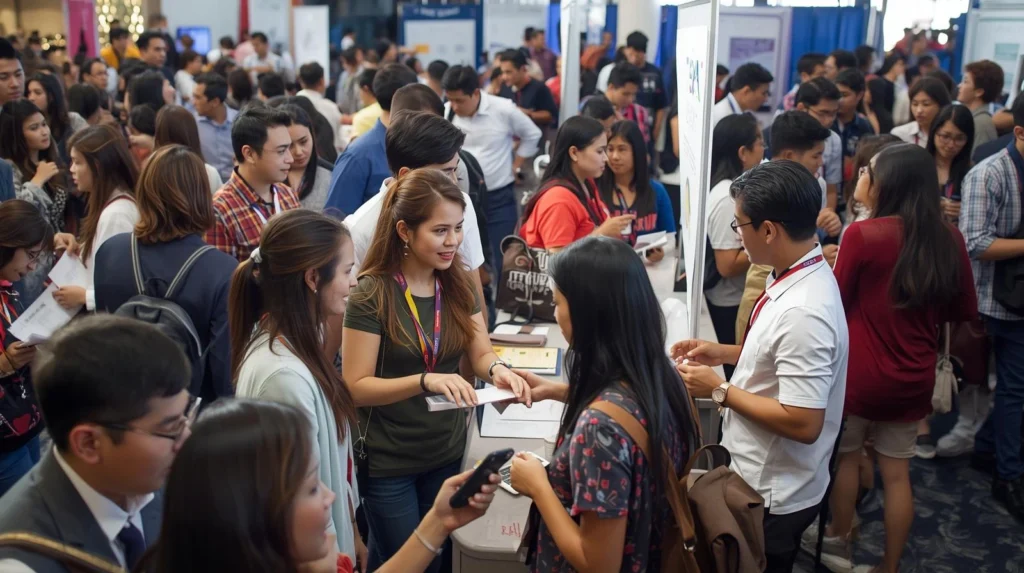
Success Stories: Real TESDA Bataan Graduates
Let me share some actual success trajectories. Names changed for privacy, but these are real people I’ve encountered or heard about through the TESDA network.
From Factory Worker to Welding Entrepreneur: Jose’s Journey
Background: Jose, 28, worked in a FAB garment factory earning ₱12,000 monthly. Dead-end job. No growth potential.
TESDA Path:
- Year 1, Month 1-6: Enrolled in Welding NC II at TESDA Bataan (TWSP scholarship)
- Year 1, Month 7: Passed NC II certification first attempt
- Year 1, Month 8-12: Worked as helper in local welding shop (₱16,000/month)
- Year 2: Promoted to junior welder (₱24,000/month)
- Year 3-4: Saved aggressively, gained experience, built reputation
- Year 5: Opened small welding shop with ₱85,000 capital
- Current (Year 7): Runs 4-person welding business, monthly income ₱120,000-180,000
Jose’s Advice: “TESDA gave me skills. But success came from treating every project like it mattered, even when nobody was watching.”
Single Mother to International Caregiver: Maria’s Story
Background: Maria, 35, single mother of two, earning ₱9,000 as retail sales associate in Balanga.
TESDA Path:
- Year 1, Months 1-6: Completed Caregiving NC II (scholarship covered, her mother watched kids)
- Year 1, Month 7: Certified
- Year 1-2: Worked at Bataan provincial hospital gaining experience (₱18,000/month)
- Year 3: Applied for Canadian caregiver program
- Year 4: Deployed to Toronto (CAD 2,400/month)
- Year 6: Permanent residency approved
- Current (Year 7): Upgraded to LPN (Licensed Practical Nurse), brought children to Canada
Maria’s Reflection: “People said I was too old to start over. TESDA proved them wrong. My kids now have opportunities I never imagined.”
Young Entrepreneur: Carlo’s Tech Journey
Background: Carlo, 22, college dropout (computer science), frustrated with theoretical education, wanted practical skills.
TESDA Path:
- Year 1, Months 1-4: Computer Systems Servicing NC II
- Year 1, Month 5: Certified
- Year 1, Months 6-12: Worked at computer shop in Balanga (₱15,000/month)
- Year 2: Started freelance computer repair service, built client base
- Year 3: Opened own computer shop/internet cafe hybrid (₱40,000/month revenue)
- Year 4: Expanded to two locations
- Current (Year 6): Three-location business, also teaches TESDA computer courses part-time, combined income ₱90,000-₱140,000/month
Carlo’s Insight: “University taught me to think. TESDA taught me to do. I needed both, but TESDA was faster and cheaper.”
Frequently Asked Questions: Everything Else You’re Wondering
Can international students enroll in TESDA Bataan?
Yes, with conditions. You need:
- Valid visa allowing study in Philippines (student visa or appropriate classification)
- Authenticated educational credentials
- Proof of Philippine residence
- Higher fees than Filipino citizens (typically 2-3x local rates)
TESDA Bataan has accommodated international students, though not as many as Manila centers. Best courses for international students: caregiving, welding, computer servicing, culinary—all with international employment potential.
Is TESDA Bataan training recognized abroad?
It depends on the certification and destination country.
Highly Recognized Internationally:
- Welding certifications (follow IWF standards)
- Caregiving NC II (Canada, UK, Australia, New Zealand, Middle East)
- Maritime-related technical skills (IMO standards)
- IT certifications (when combined with international certs like CompTIA)
Requires Additional Steps:
- Some countries need credential evaluation
- May require local licensing exams
- Language proficiency tests often necessary
- Certain fields require experience plus certification
Best Approach: Research your target country’s specific requirements before enrolling. Some TESDA certifications open doors; others need supplementation.
How long does TESDA training actually take?
Short Courses: 1-3 months
(Basic computer literacy, food service, basic beauty care)
Standard NC II Programs: 3-6 months
(Welding, automotive, caregiving, electrical, most technical trades)
Advanced Programs: 6-12 months
(Electronics, advanced programming, specialized manufacturing)
Part-Time Study: Double the full-time duration
Add 1-2 months for assessment and certification processing.
Total timeline from enrollment to certified employment: 5-10 months typically.
Can you fail TESDA training?
Not in the traditional sense. TESDA is competency-based, not grade-based.
What Can Go Wrong:
- Attendance: Fall below 85% attendance, you’re disqualified from certification
- Assessment: Receive “Not Yet Competent” (not “fail”)—can retake after additional training
- Behavioral: Serious violations can lead to expulsion (rare)
Reality: Most students who show up consistently and try reasonably hard complete training successfully. It’s designed for success, not gatekeeping.
Do employers actually respect TESDA certificates?
Absolutely—especially in technical industries.
Philippine employers in manufacturing, construction, automotive, and service sectors actively seek TESDA-certified candidates. Job postings often specify “NC II certified” as requirement.
International employers also recognize TESDA certifications, particularly in countries with labor agreements with the Philippines.
Why Employers Value TESDA:
- Standardized competency guarantee
- Skills-ready workers
- Less training investment needed
- National certification credibility
What if I don’t have a high school diploma?
Several options exist:
Alternative Learning System (ALS):
- Government equivalency program
- Free testing
- Acceptable for most TESDA programs
- Takes 3-6 months to complete
Age and Experience:
- Some courses accept mature applicants (30+) without formal education if they have relevant experience
- Case-by-case evaluation
Junior High School (Grade 10):
- Some basic courses accept Grade 10 completion
- Not true for all programs
Recommendation: Complete ALS if possible. It opens more doors beyond just TESDA.
Can you take multiple TESDA courses?
Yes! Strongly encouraged.
Benefits of Multiple Certifications:
- Increased employability
- Higher earning potential
- Career flexibility
- Entrepreneurship advantages
- Supervisor/management pathways
Popular Combinations:
- Welding + Electrical (construction versatility)
- Automotive + Driving NC II (transport industries)
- Computer Hardware + Programming (tech entrepreneurship)
- Culinary + Bread/Pastry + Bartending (food business)
- Caregiving + First Aid + Massage Therapy (healthcare premium)
Time Investment: With good planning, complete 2-3 certifications in 12-18 months.
Is 30 (or 40, or 50) too old for TESDA?
Absolutely not.
I’ve personally met TESDA students ranging from 17 to 62 years old. Age discrimination is far less prevalent in skilled trades than in corporate environments.
Advantages of Mature Students:
- Better focus and discipline
- Clear career goals
- Life experience
- Strong work ethic
- Often more appreciative
Challenges:
- Physical demands (vary by course)
- Keeping up with younger students (usually not an issue)
- Financial responsibilities (harder to take time off work)
Real Talk: Your skills matter, not your birth year. If you can do the work, employers pay for it. I’ve seen 50-year-old welders out-earn 25-year-old office workers.
Your Action Plan: Getting Started This Week
You’ve made it through 3,000+ words. You’re clearly serious. Here’s your concrete roadmap to actually making this happen.
This Week (Days 1-7)
Day 1: Self-Assessment
- Identify 3 courses that genuinely interest you
- Research employment demand for each
- Check salary ranges
- Assess your financial capacity
Day 2: Information Gathering
- Visit TESDA official website
- Get current TESDA Bataan contact number
- Join TESDA Bataan Facebook groups
- Read current student reviews/comments
Day 3: Initial Contact
- Call or message TESDA Bataan
- Ask about next batch schedules for your chosen courses
- Inquire about scholarship availability
- Request enrollment requirements list
Day 4: Financial Planning
- Calculate total budget (training + 6 months living expenses)
- Identify funding sources
- Research scholarship eligibility
- Create backup financial plan
Day 5: Document Checklist
- List all required documents
- Identify what you have
- Note what needs acquiring
- Create acquisition timeline
Day 6-7: Family/Work Discussion
- Discuss plans with family
- Plan around current responsibilities
- Set expectations
- Get support commitments
Next Two Weeks (Week 2-3)
Document Acquisition:
- Request PSA birth certificate
- Get medical certificate if needed
- Take ID photos
- Gather educational credentials
- Prepare photocopies
Accommodation Research:
- If relocating, scout options
- Visit boarding houses
- Calculate actual costs
- Consider roommate arrangements
Test Run:
- Visit Bataan (if not local)
- Tour TESDA facility if possible
- Check commute routes and timing
- Meet current students if opportunity arises
Month One
Week 4: Application Submission
- Submit enrollment application
- Apply for all scholarship opportunities
- Pay required fees
- Get receipts for everything
Week 5-6: Preparation Phase
- Finalize accommodation
- Buy necessary supplies/gear
- Set up local support systems
- Mental preparation
Week 7-8: Pre-Training
- Attend orientation
- Meet classmates
- Tour facilities thoroughly
- Finalize schedule
Week 9+: Training Begins!
- Show up every day
- Give maximum effort
- Build your network
- Trust the process
Final Thoughts: The Choice Is Yours
Look, I’m not going to give you the standard motivational speech about how TESDA will solve all your problems. That would be dishonest.
TESDA Bataan won’t make you rich overnight. It won’t guarantee employment. It won’t transform you into something you’re not.
What it will do—if you show up, work hard, and persist—is give you legitimate, marketable skills that employers value and pay for.
It will provide you nationally recognized certification that opens doors previously closed.
It will connect you with instructors who genuinely want you to succeed, classmates who become lifelong friends and business partners, and an employment network that extends throughout Central Luzon and beyond.
The Bataan Advantage Specifically:
You’re training in a province that’s strategically positioned between major employment hubs, yet maintains lower living costs than urban centers. You’re near enough to opportunity, yet far enough from the chaos and expense of Metro Manila.
The industrial presence in Bataan means real jobs exist for the skills you’ll learn. This isn’t theoretical training disconnected from employment reality—it’s practical preparation for actual positions that actual companies need to fill.
But here’s what I need you to understand:
The TESDA system works, but only if you work the system.
Showing up isn’t enough. Attending classes isn’t sufficient. You need to:
- Practice beyond required hours
- Ask questions when confused
- Help classmates (teaching reinforces learning)
- Network aggressively
- Maintain perfect attendance
- Pursue excellence, not just competence
The students who succeed at TESDA Bataan aren’t necessarily the most talented. They’re the most persistent.
So here’s my final challenge:
Stop researching. Stop overthinking. Stop waiting.
Pick up your phone right now. Search for the TESDA Bataan contact number. Make the call. Ask about next enrollment dates. Request the requirements. Start the process.
Six months from now, you can either be six months into a new career trajectory, or six months older with the same limitations you have today.
Your choice.
The training centers are ready. The instructors are prepared. The certifications are recognized. The employers are hiring.
The only thing missing? Your commitment.
Make it happen.
Start today.
Quick Reference Guide
Key Contacts
- TESDA National Website: tesda.gov.ph
- TESDA Bataan Provincial Office: Check official website for current contact details
- TESDA Hotline: Verify on official website
- Facebook: Search “TESDA Bataan” for official page
Essential Documents Checklist
✓ PSA Birth Certificate
✓ Valid Government ID
✓ 2×2 ID Photos (6 copies)
✓ High School Diploma/Transcript
✓ Medical Certificate (if required)
✓ NBI Clearance (caregiving and some courses)
✓ Barangay Clearance (some programs)
Top 5 Most In-Demand Courses in Bataan
- Welding NC II
- Caregiving NC II
- Automotive Servicing NC II
- Electrical Installation NC II
- Computer Systems Servicing NC II
Scholarship Programs Available
- Training for Work Scholarship Program (TWSP)
- Private Education Student Financial Assistance (PESFA)
- Special Training for Employment Program (STEP)
- Industry-sponsored scholarships
Employment Hubs Near Bataan
- Freeport Area of Bataan (FAB): 10-30 minutes
- Subic Bay Freeport: 45 minutes
- Metro Manila: 1.5 hours
- Clark Freeport: 1 hour
Typical Training Timeline
- Application to Enrollment: 2-4 weeks
- Training Duration: 3-6 months (most programs)
- Assessment Scheduling: 1-4 weeks after training
- Certification Release: 4-8 weeks after passing
- Total Time to Employment: 5-10 months
Budget Planning (6-Month Training)
| Category | Minimum | Comfortable |
|---|---|---|
| Accommodation | ₱15,000 | ₱30,000 |
| Food | ₱27,000 | ₱45,000 |
| Transportation | ₱9,000 | ₱18,000 |
| Supplies | ₱1,800 | ₱4,800 |
| Miscellaneous | ₱6,000 | ₱12,000 |
| Emergency | ₱6,000 | ₱12,000 |
| TOTAL | ₱64,800 | ₱121,800 |
Additional Resources and Next Steps
Recommended Reading and Research
Before You Enroll:
- Study the TESDA competency standards for your chosen course
- Read industry blogs about your target profession
- Watch YouTube videos of professionals in your field
- Join professional Facebook groups related to your course
During Training:
- Subscribe to industry newsletters
- Follow relevant social media accounts
- Connect with professionals on LinkedIn
- Stay updated on employment trends
Building Your Professional Network
Start Early: Even before completing training, begin networking:
- Connect with instructors (they have industry contacts)
- Exchange contact information with all classmates
- Join alumni associations
- Attend industry events and job fairs
- Participate in TESDA-organized activities
Online Presence: Create professional profiles on:
- LinkedIn (highlight your TESDA certification)
- Facebook professional pages (if applicable)
- Industry-specific forums
- Portfolio websites (for visual work like welding, carpentry, culinary)
Continuing Education Paths
TESDA isn’t the end—it’s the beginning:
After NC II Certification:
- Pursue NC III in your field (advanced level)
- Stack complementary certifications
- Take specialized short courses
- Consider international certifications (IWF for welding, etc.)
- Attend industry workshops and seminars
Bridge to Higher Education:
- Some colleges accept TESDA units as credits
- Consider part-time degree programs while working
- Pursue technical diplomas or associate degrees
- Balance practical skills with theoretical knowledge
Entrepreneurship Training:
- TESDA offers business management courses
- DTI provides SME development programs
- Cooperatives offer micro-financing training
- Local government often has livelihood programs
Industry-Specific Career Advancement
Welding: Year 1-2: Helper → Junior Welder
Year 3-5: Certified Welder → Senior Welder
Year 6+: Welding Supervisor → Welding Inspector → Shop Owner
Caregiving: Year 1-2: Caregiver Assistant → Certified Caregiver
Year 3-5: Senior Caregiver → Overseas Caregiver
Year 6+: Care Supervisor → Facility Manager → Agency Owner
Automotive: Year 1-2: Apprentice → Junior Technician
Year 3-5: Certified Technician → Senior Technician
Year 6+: Master Technician → Shop Supervisor → Business Owner
Computer Services: Year 1-2: PC Technician → Senior Technician
Year 3-5: IT Support Specialist → Network Administrator
Year 6+: IT Manager → Consultant → Service Business Owner
Understanding Bataan: Context for International Students
If you’re coming from abroad, here’s what you need to know about Bataan as your training location.
Geographic and Cultural Context
Location:
- Central Luzon region, Philippines
- Peninsula between Manila Bay and South China Sea
- 1,372 square kilometers
- Population: Approximately 850,000
Climate:
- Tropical climate (hot and humid)
- Dry season: November-April (best time for training)
- Wet season: May-October (heavy rains possible)
- Average temperature: 25-32°C (77-90°F)
Language:
- Tagalog/Filipino widely spoken
- English commonly understood (especially in education)
- Local dialects: Kapampangan in some areas
- TESDA instruction typically in Tagalog/English mix
Historical Significance
Bataan holds special place in Philippine and world history:
- Battle of Bataan (1942): Heroic World War II stand
- Bataan Death March: Site of wartime tragedy
- Liberation Memorial: Historical landmarks throughout province
- Deep sense of resilience and pride among locals
Understanding this context helps you appreciate the provincial character—tough, proud, hardworking people who value perseverance.
Cost of Living Comparison
Bataan vs. Major Philippine Cities:
| Item | Bataan | Manila | Subic |
|---|---|---|---|
| Meal (basic) | ₱50-80 | ₱80-150 | ₱100-180 |
| Coffee | ₱30-60 | ₱60-120 | ₱70-130 |
| Monthly Room | ₱2,500-5,000 | ₱5,000-12,000 | ₱4,000-8,000 |
| Jeepney Ride | ₱10-15 | ₱12-20 | ₱15-25 |
| Internet Cafe | ₱15-25/hr | ₱20-40/hr | ₱20-35/hr |
For International Students: Your money stretches significantly further in Bataan while maintaining quality training and reasonable access to urban amenities.
The Ultimate Guide to TESDA Free Courses Online: Certificates, Allowances, and How to Enroll ?
Getting to Bataan
From Manila (NAIA Airport):
- Bus from Cubao or Pasay (₱200-300, 2-3 hours)
- Private car/taxi (₱2,500-4,000, 1.5-2 hours)
- Best bus companies: Five Star, Genesis
From Clark (Clark International Airport):
- Bus or van (₱150-250, 1.5-2 hours)
- Private transfer (₱2,000-3,000)
Within Bataan:
- Jeepneys (₱10-25 depending on distance)
- Tricycles (₱20-80 for short trips)
- Buses (₱30-60 for inter-municipality travel)
Cultural Tips for International Students
Filipino Workplace/Training Culture:
- “Po” and “Opo”: Respectful terms for elders/superiors (use liberally)
- “Mano po”: Gesture of respect (placing elder’s hand to your forehead)
- Pakikisama: Getting along, being part of the group (highly valued)
- Bayanihan: Community cooperation (help offered freely)
- Filipino Time: Some flexibility with punctuality (though TESDA training is strict)
Do’s:
- Smile and greet everyone
- Show respect to instructors and elders
- Participate in group activities
- Share food if you have some
- Ask questions politely
- Accept hospitality graciously
Don’ts:
- Criticize publicly or cause someone to lose face
- Refuse food offers abruptly (polite declining is okay)
- Display excessive wealth/privilege
- Rush conversations (relationship-building takes time)
- Ignore social invitations entirely
Food Culture: Filipino cuisine is rice-based with influences from Spain, China, and America:
- Every meal typically includes rice
- Breakfast can be substantial (rice, meat, eggs)
- “Merienda” (snack time) is important culturally
- Street food is safe if from clean vendors
- Vegetarian options limited but available
Safety and Health
General Safety: Bataan is relatively safe compared to Metro Manila:
- Low violent crime rates
- Petty theft possible (guard valuables)
- Traffic accidents more common concern
- Natural disasters: Typhoons, earthquakes (prepare accordingly)
Healthcare:
- Provincial hospital in Balanga
- Private clinics throughout province
- Pharmacies widely available
- Medical costs lower than Western countries
- Travel insurance recommended for international students
Food and Water:
- Tap water: Not recommended for drinking
- Bottled water: Widely available, inexpensive
- Street food: Generally safe from established vendors
- Restaurants: Check cleanliness before eating
Communication and Connectivity
Mobile Networks: Major providers: Globe, Smart, DITO
- Prepaid SIM cards: ₱20-50
- Data packages: ₱50-100 for 2-5GB
- Coverage generally good in populated areas
Internet:
- Fiber internet in urban areas
- Internet cafes: ₱15-25 per hour
- Mobile data often more reliable than home internet
- Training centers may have WiFi
Banking and Money
Setting Up:
- Major banks: BDO, BPI, Metrobank, LandBank
- Requirements: Valid ID, proof of address, initial deposit
- International students: Bring passport, proof of residence
- ATMs widely available in towns
Money Transfer:
- Western Union, MoneyGram available
- International wire transfers through banks
- Remittance centers throughout province
- Mobile payment apps: GCash, PayMaya gaining popularity
Boost Your Career with Free ILO Online Courses: Job Readiness and STEM Skills
Final Encouragement: You Can Do This
I’ve spent thousands of words giving you information, strategies, warnings, and advice. Now let me just speak human to human.
If you’re reading this, something in your life isn’t working the way you want. Maybe you’re unemployed. Maybe you’re underemployed. Maybe you’re stuck in a dead-end job. Maybe you’re in another country looking for legitimate pathways to skill development and potential immigration opportunities.
Whatever brought you here, I want you to know: TESDA Bataan can be your answer.
Not the only answer. Not a magic solution. Not a guarantee of overnight success.
But a legitimate, affordable, accessible pathway to developing real skills that real employers pay real money for.
I’ve seen it work for:
- High school dropouts who became six-figure earners
- Single parents who transformed their family’s trajectory
- Middle-aged career changers who found new purpose
- Young people who avoided crushing student loan debt
- International students who built professional credentials
The common thread? They all showed up. They all did the work. They all persisted when it got difficult.
Your Turn:
You have all the information you need. You know the courses available. You understand the enrollment process. You’ve seen the scholarship options. You know what to expect.
The only question remaining: Will you take action?
Not tomorrow. Not next week. Not “when the timing is better.”
Today.
Right now.
Put down this article. Pick up your phone. Contact TESDA Bataan. Start the process.
Six months from now, you’ll be grateful you did.
Or you’ll be wishing you had.
Your choice.
Your future.
Your move.
Make it count.
About This Guide
This comprehensive guide was created to help prospective students navigate TESDA Bataan training opportunities. All information is current as of 2025, but specific details (contact numbers, fees, schedules) should be verified directly with TESDA offices as programs and requirements can change.
For updates, corrections, or additional information, contact TESDA Bataan directly or visit the official TESDA website at tesda.gov.ph.
Disclaimer: This guide provides general information and personal insights. It does not constitute official TESDA policy or guarantee of outcomes. Individual experiences may vary based on personal circumstances, effort, and external factors.
Ready to Transform Your Future?
Contact TESDA Bataan today.
Your new career starts with one phone call.
Make it now.

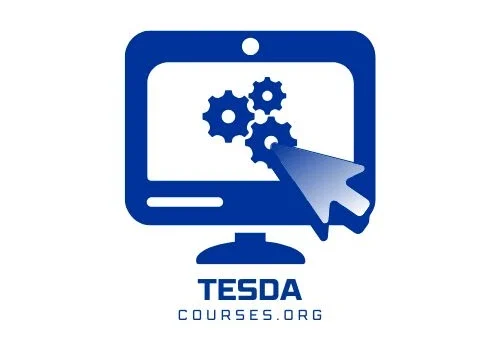
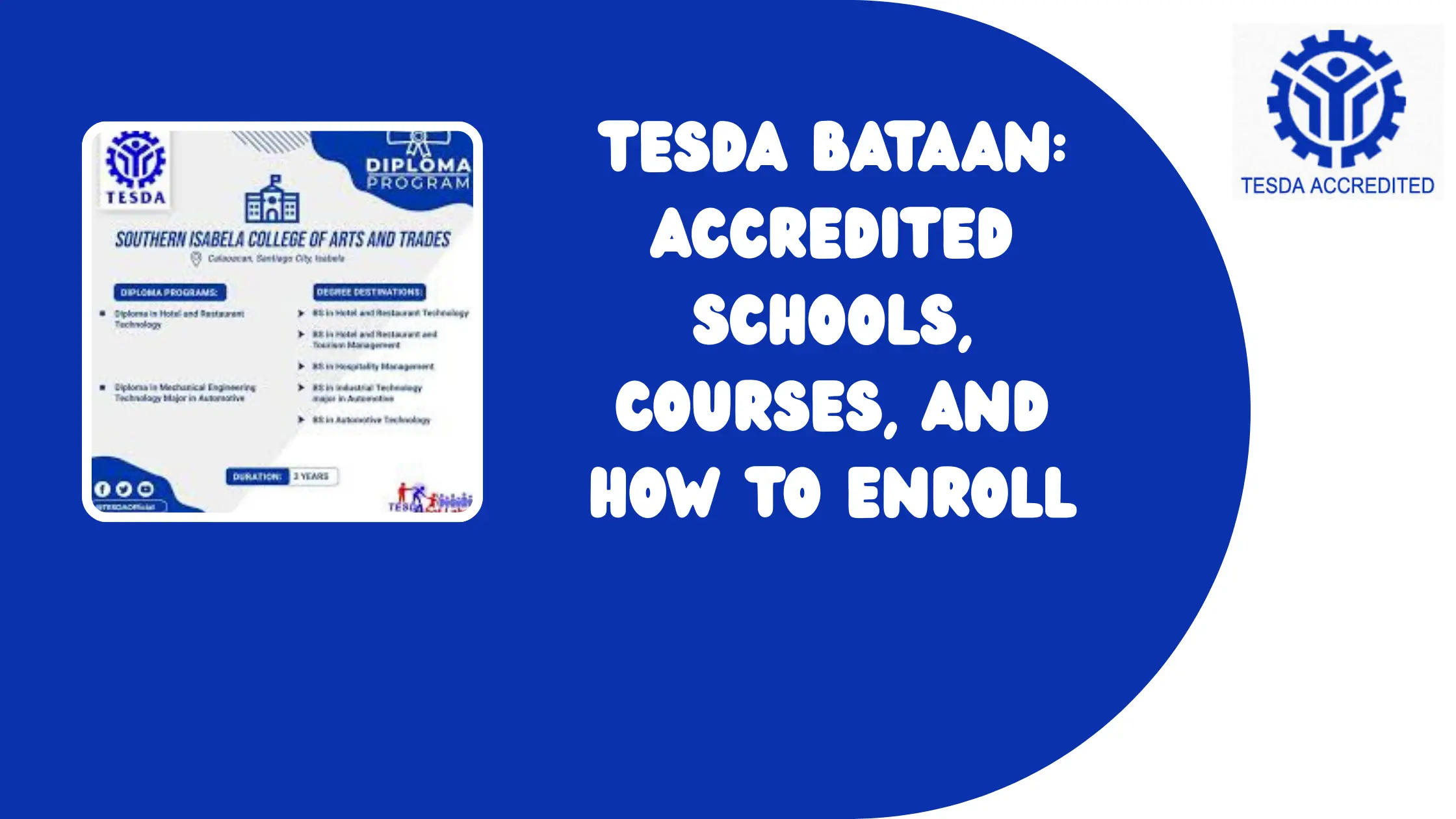

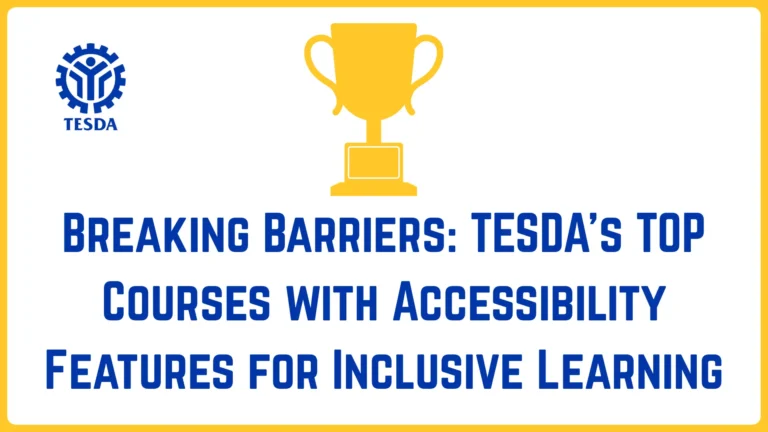

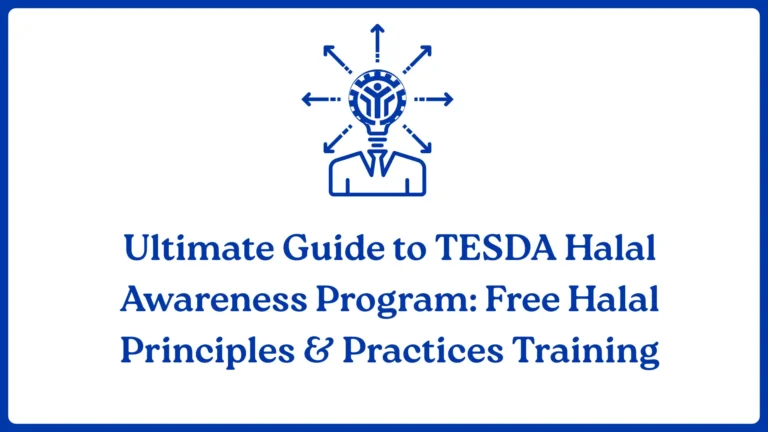
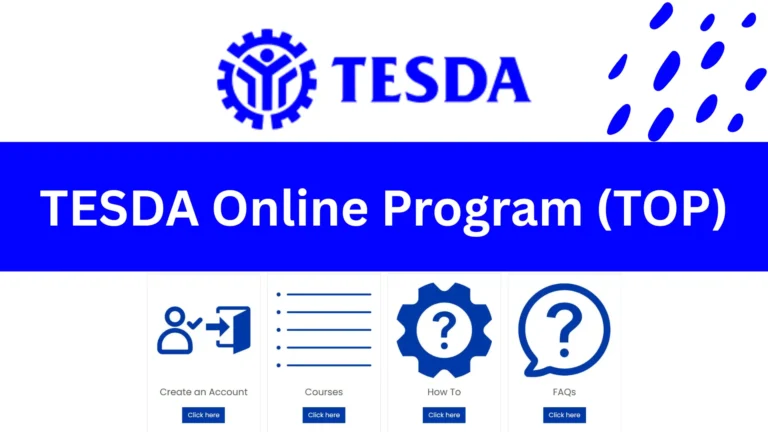

hello ma’am /sir I’m interested to study in tesda by taking the curse as caregiver
Agust 26, 2025 at 6:06 am
pede po bang mag take ng tesda ang tulad ko po na ALS graduate?
ano po mga requirements if pede..
saan po pedeng mag enroll taga Cebu City po ako
pede po bang mag take ng tesda ang tulad ko po na ALS graduate?
ano po mga requirements if pede..
saan po pedeng mag enroll taga limay bataan po ako.
Hi ma’am gooday po enrolled po
Hello ma’am interested po ako mag Enroll sa Tesda Course po is Agriculture or engineering po
post ng post wala naman scholarship …………………………………………………………………………….kahit dito sa mindanao
Enrollment po
The clarity and simplicity of your writing are a perfect complement to the depth of the ideas you explore.